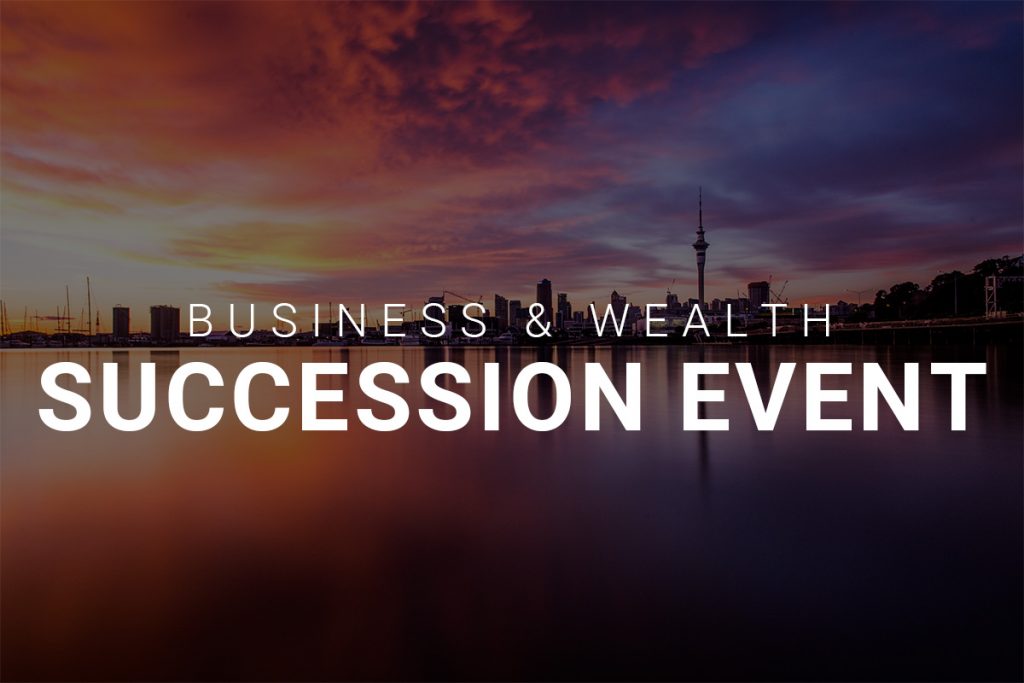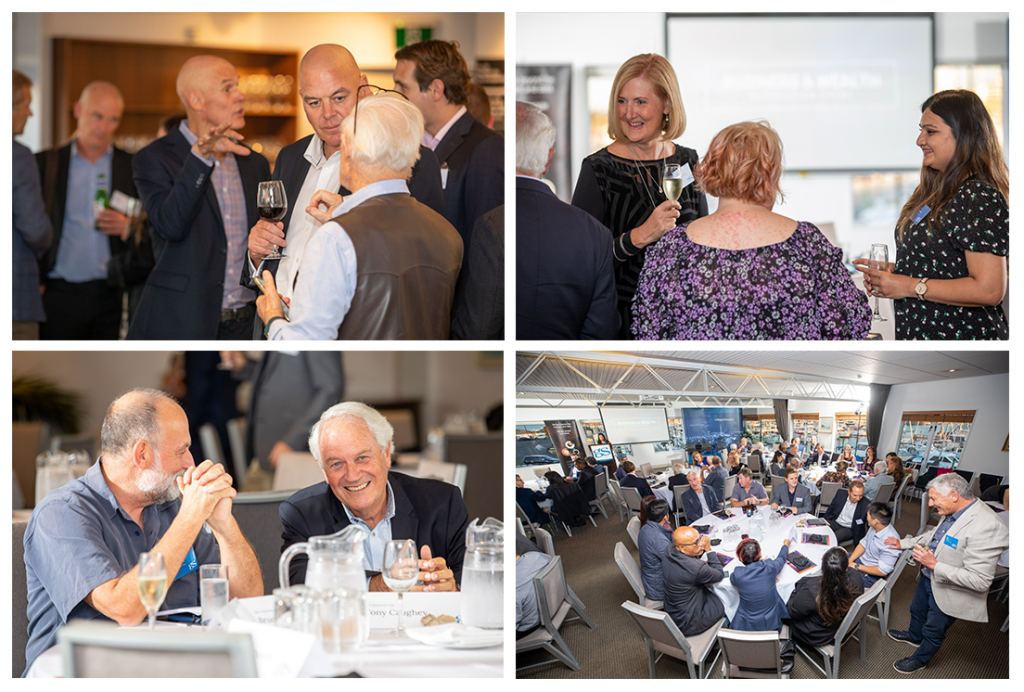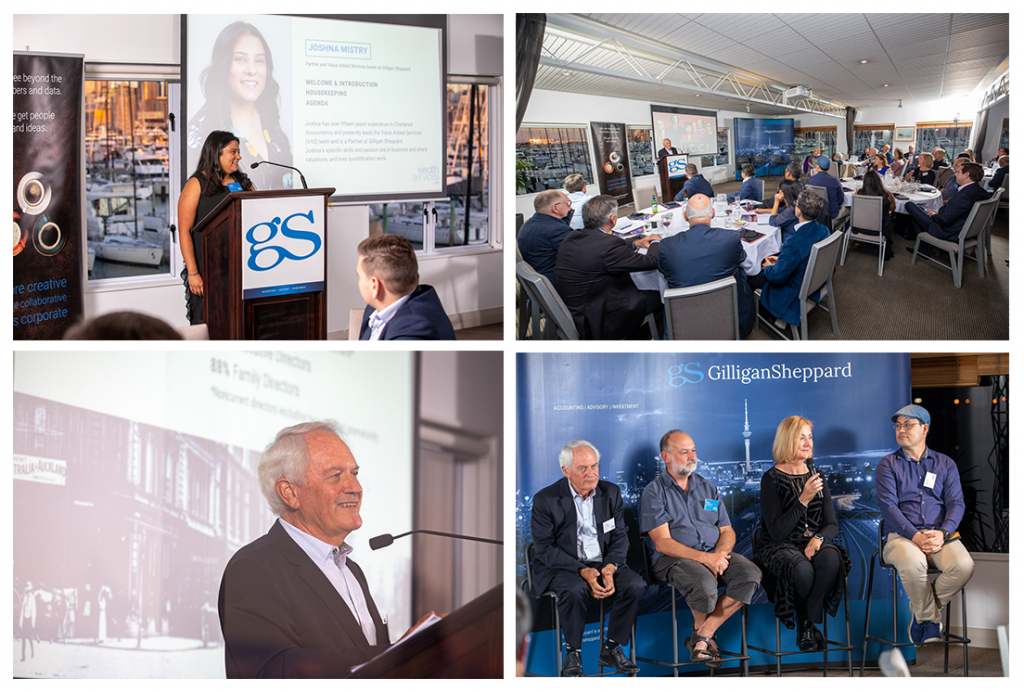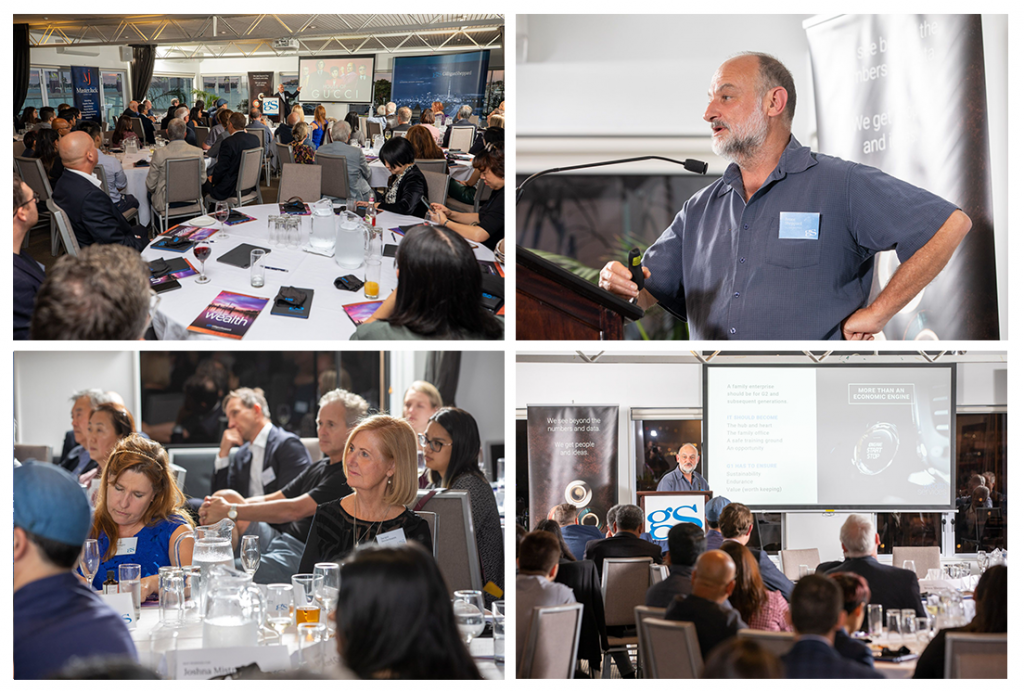We are recognised as authorities in our specialised fields. We publish newsletters with informed opinions that are free for you to subscribe to.
Wealth & Succession Points to Note
An owner and director of a 150-year-old Auckland iconic business, an Auckland accountant who has been building, guiding, and governing businesses for at least 35 years, and two second-generation (G2) owners who, through tragic circumstances, suddenly found themselves at the helm of their family businesses. They all walk into a bar…
Well, not into a bar, but into the Royal New Zealand Yacht Squadron where we hosted the GS Business & Wealth Succession Event. They were invited to speak about their experiences in the succession of their family businesses. Why? Because we believe that it is learning from real-life stories and experiences that we can learn, especially as a succession of any type is as much, if not more, about emotion and psychology as it is about systems and a process.

“Wonderful evening, thank you! Always good to hear real family stories rather than theoretical examples of how things should work… far more compelling, well done.”
We heard from Tony Caughey of Smith & Caughey’s Ltd which is in its sixth generation, owned by the founding family over this time. The key points I took from Tony’s session are worthy to note or think about:

- Directors of the business have historically had a long tenure, largely because they knew the business well, and a lot of emphases is put on knowing the business well. The business started as retail and has remained retail, though changed form over time in terms of market and products. Nevertheless, directors of long tenure have been able to navigate the business through these changes. Note: many companies now have policies on the tenure of directors being limited.
- Shares have been gifted over time – there has never been a requirement to pay for the shares. While there has always been the freedom to sell the shares, rarely have the shares been sold.
- A key business strategy which has survived through the generations is to own all the buildings, hold no, or very little debt, and keep a “rainy day” fund.
- Retain ownership of assets rather than sell – the emphasis is on dividend income.
- Frugal in business, but socially generous.
“Congratulations to you and your team on a superbly constructed event. I learned heaps and thoroughly enjoyed it.”
Bruce Sheppard spoke about the requirements for family wealth succession:

- Requirements are a scale business and a family. It’s likely in future generations, there will not be as much “choice” as in previous generations with the decrease in average biological children per family. However, a family need not be biological.
- The skills required in building a scale business – value and purpose alignment, are equally important to be built within the family.
- How do you build value and purpose alignment within your family? Tell your stories to your family; keep them involved and close, and perhaps provide opportunities to be involved in special projects. However – always give freedom and never create an obligation.
- Hopefully a natural successor will become clear to everyone.

Tony and Bruce were supported by Jacqui Bensemann and Nicholas Lee. Jacqui is the managing director of Argus Fire Protection and a second-generation shareholder. Nicholas is the managing director of KPAC Ltd (flexible packaging company) and a second-generation shareholder.
“Thanks for hosting the Family Business Forum. Great learnings for me, both in terms of my role, but also personally. You chose the panellists really well.”
Both Jacqui and Nicholas, as Tony had prior, reiterated that business conversation was a regular part of their lives from when they were young; whether through observation (business dinners at their homes); or later, more directly where they had some involvement in project work. A lot is absorbed informally and through osmosis. They both spoke about running their purposeful value-based businesses.
“It was an excellent evening, great venue, well-run event, spot-on topic, and excellent speakers. I met some interesting folk and learned a great deal. Nice work.”
The speakers highlighted the purpose and values of their business, but aren’t we supposed to be talking about the succession of wealth? Why the emphasis on purposeful value-based business? Why is that important if the business is of scale and profitable? How does this all tie together?
Perhaps successful succession of wealth is based on much more than just the dollars a business generates. It is not just business succession. The successors are attracted to much more than that, because if it was just that, why wouldn’t they just sell the asset. Every speaker talked of purpose, values, of legacy. This permeates through running the business no matter what it is, and through the energy of those who choose to own and maintain it.

As Nicholas said, his children are 8 and 12, too young to take over the family business. By the time they are ready, it is likely the business will have diversified and changed form completely for various reasons. Perhaps the right decision for the family will be to sell some business assets at various times. However, his overriding philosophy is to continue to run the family wealth based on purpose and values and empower his children/successors to do the same. It is these philosophies, purposes and values which need to define the governing of family wealth.
Thank you to our speakers and panellists for providing such great content. And thank you to our guests for joining us.




If you don’t know where to begin, want to talk through something, or have a specific question but are not sure who to address it to, fill in the form, and we’ll get back to you within two working days.
Find out about our team
Look through our articles
Read more about our history
Business Advisory Services
Tax Specialist Services
Value Added Services
Get in touch with our team
Want to ask a question?
What are your opening hours?
AML & CFT Act in New Zealand
Events with Gilligan Sheppard
Accounting software options
Where are you located?
Events

